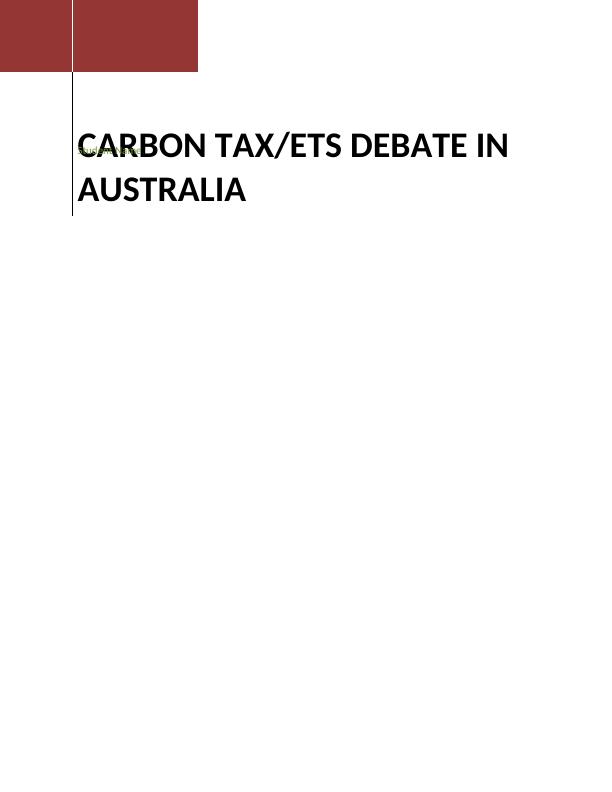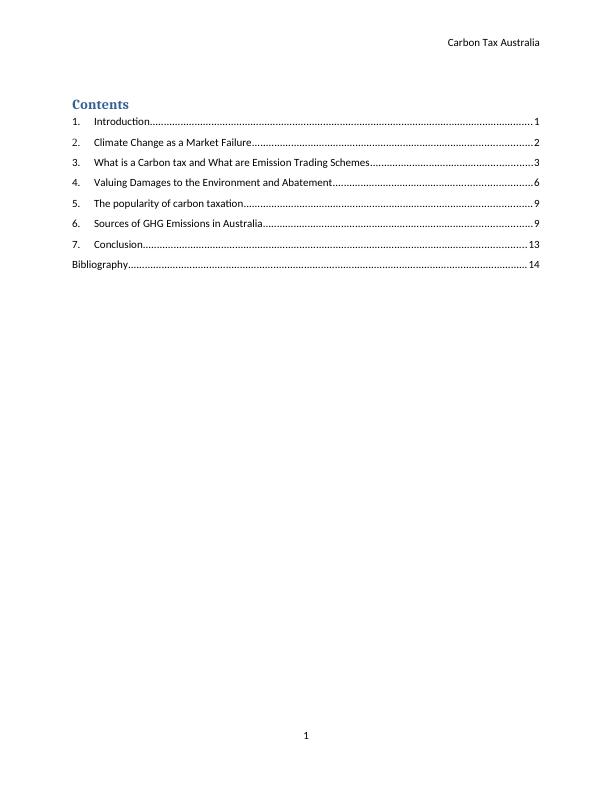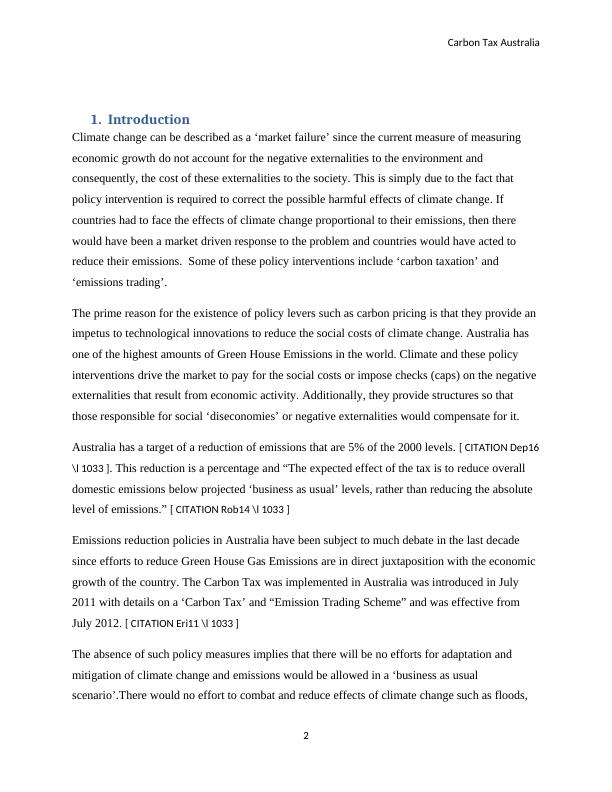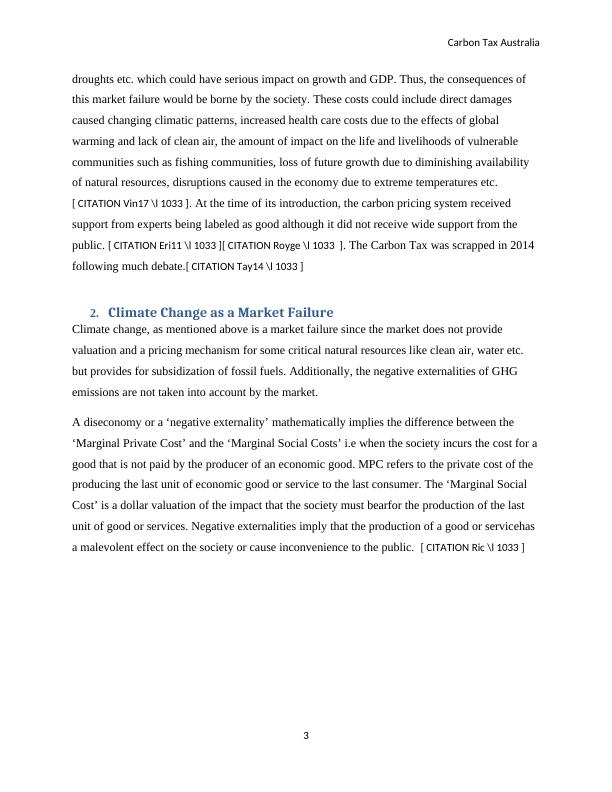Carbon Tax Australia | HI5003
16 Pages4220 Words111 Views
Holmes Institute Sydney
HI5003 Economics for Business (HI5003)
Added on 2020-03-01
About This Document
The assignment is centered on Australia's Carbon Tax, and we will explore some relevant topics such as climate change as a market failure, what is a carbon tax, and what are Emission Trading Schemes. The report also shows how to value environmental damages and how to reduce them. And it gave some light on carbon taxation's popularity.
Carbon Tax Australia | HI5003
Holmes Institute Sydney
HI5003 Economics for Business (HI5003)
Added on 2020-03-01
ShareRelated Documents
End of preview
Want to access all the pages? Upload your documents or become a member.
ECO 3CCE Climate Change Economics Assignment
|12
|3095
|176
Emission Trading Scheme in Agriculture: Arguments for and Against
|7
|1314
|332
Climate Change Effecting Tourism Assignment
|14
|3891
|29
Impact of US/China Trade War On Macroeconomics Condition
|20
|5744
|12
Reconciliation of Economic and Environmental Challenges in the 21st Century
|8
|1664
|57
MGT723 Research Project: Data Collection
|6
|1436
|182




